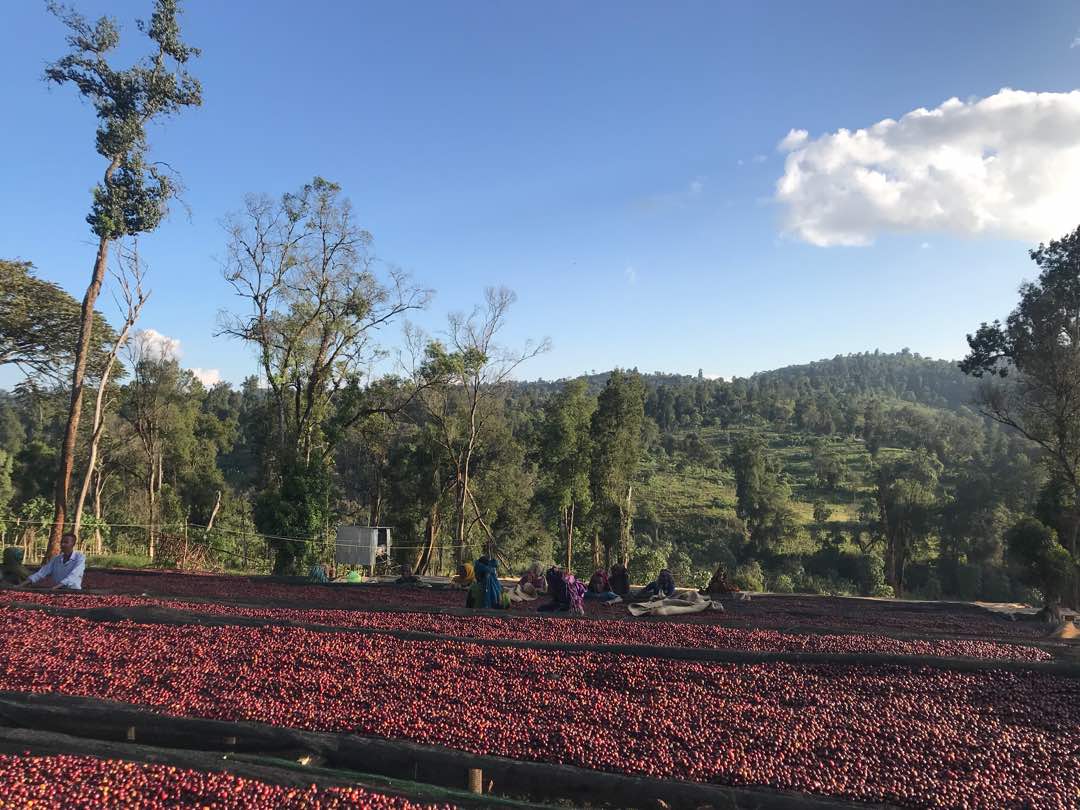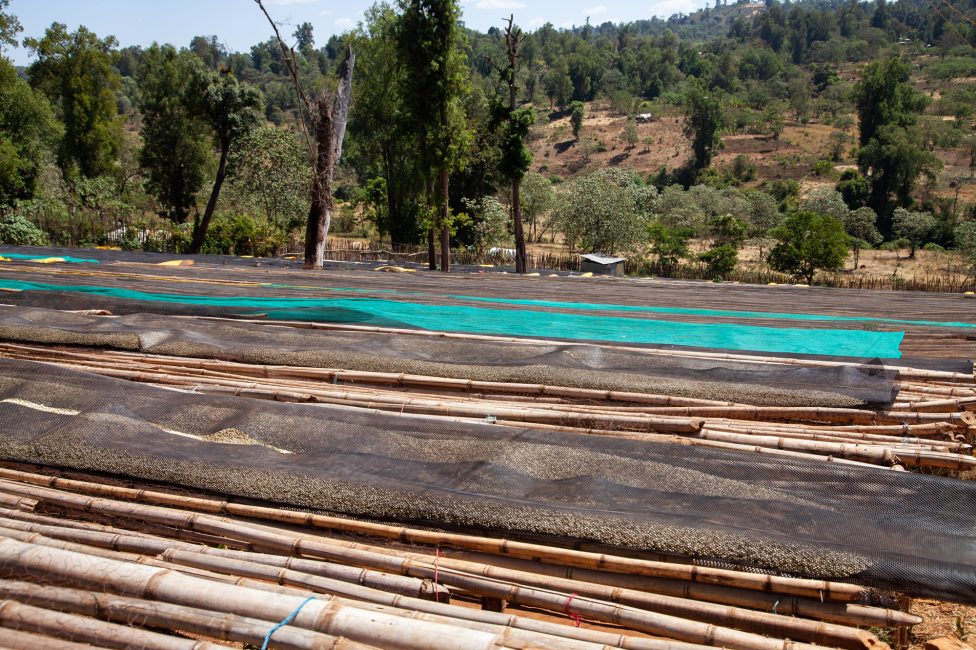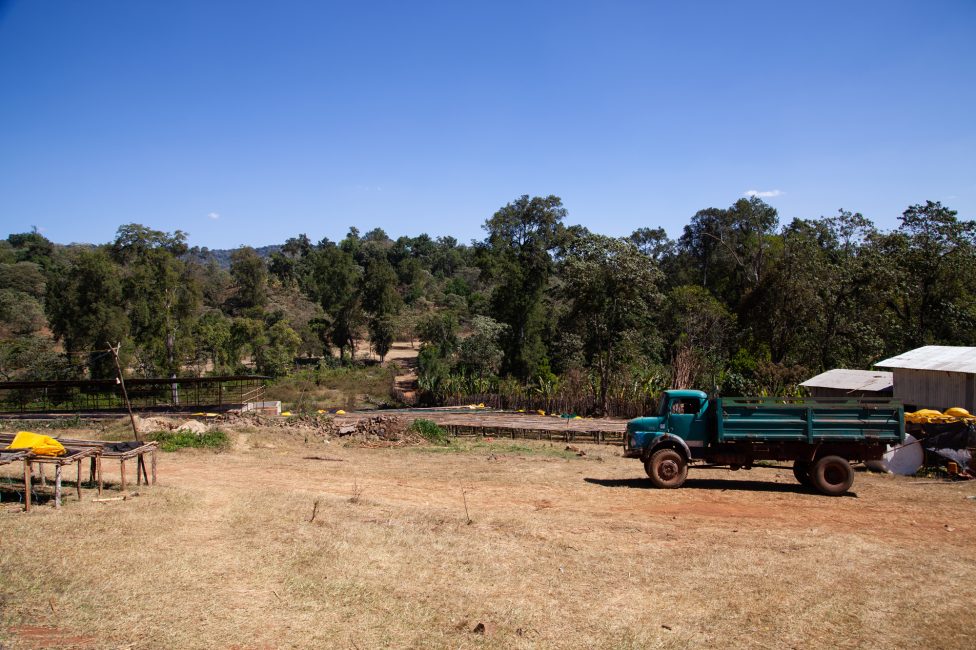Gidey Berhe
Ripe strawberry, dried cranberry and Muscat and pear, with a velvety mouthfeel and tropical sweetness.
Gidey Berhe Retta is the owner of a 356-hectare farm in Limu Kossa, which is located in the Djimmah zone in the South Western highlands of Ethiopia’s the Oromia State, 52 km to the West of Djimma town.
Gidey’s farm is called Limu Kossa Estate, which was established in 2000. It sits at 1,840–2,130m above sea level and is meticulously maintained under Gidey’s watchful eye. The sizable estate is broken into 15 hectare sections, that are clearly marked and the varieties planted within each recorded. Coffee grows under the shade of native trees, which provide an important habitat for the native animals and helps maintain the biodiversity in the area.
Gidhey farms the estate organically and has also got UTZ and Rainforest alliance certifications. Honey is also produced on the estate, which has 107 beehives and a lot of very happy bees!
VARIETY
This coffee is a mix of local varieties, including native coffees from forest origin that are collectively known as ‘Ethiopian Heirloom’. All of these varieties are Arabica and most originate from a Typica predecessor, but with wild mutations that result in some exceptional and unique flavour profiles.
PROCESSING
This coffee was picked and processed at Limu Kossa estate. 400 seasonal worker are employed during the harvest to carefully hand pick the coffee, doing multiple passes throughout the season to ensure only the very ripest cherries are selected.
This particular lot from Limu Kossa is classified as Grade 1, indicating that a lot of effort has been put into the selection, grading and drying to ensure the very highest quality coffee is produced. It has been naturally processed; a complex method requiring a high level of attention to detail in order to be done well. Ethiopian coffee has been processed this way by generations of farmers who have mastered the art of the natural method through centuries of tradition and experience.
Each day, carefully hand-picked coffee cherries are delivered to the mill on the estate and are meticulously hand-sorted prior to processing to remove unripe, overripe, or damaged fruit, in order to enhance the quality and sweetness of the cup.
The coffee is then graded by weight and spread evenly on raised African beds (screens) to dry – initally under cover for 24 hours and then in the full sun for 7 – 10 days. Initially, it is laid very thinly and turned regularly to ensure consistent drying and prevent over-fermentation. This is done very carefully to avoid damage to the fruit.
After a few days, when the coffee has reached 25% humidity—this is called the “raisin stage”—the layers of coffee are gradually increased. Careful attention and control during this drying phase ensures the coffee is stable and that a clean and balanced cup profile is achieved. The coffee is turned constantly whilst drying to ensure that it dries evenly and consistently. At midday, the coffee is covered to protect it from full sun. It is also covered overnight to prevent damage from morning dew.
Once the coffee reaches 12% humidity, it is hulled and rested in bags in parchment until it is ready for export.
WHY WE LOVE IT
We fell in love with this coffee on the cupping table in Ethiopia and fell even deeper in love with it the more we learnt more about Gidey.
Gidey is known for his passion and integrity within the local Limu Kossa community and is well loved. Many call him Abba Ollie (“the one who uplifts”). He cares deeply about coffee quality and community development and works hard to share his knowledge and better quality varieties to surrounding farmers, in order to help them improve their quality and get access to better prices. His farm is also an excellent example of agro-forestry, with coffee growing as close to wild as commercially possible.


